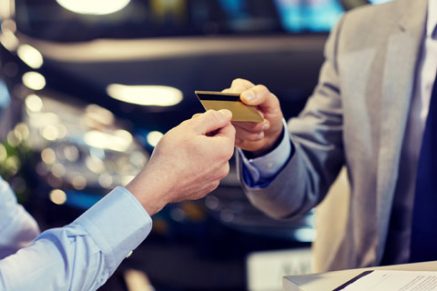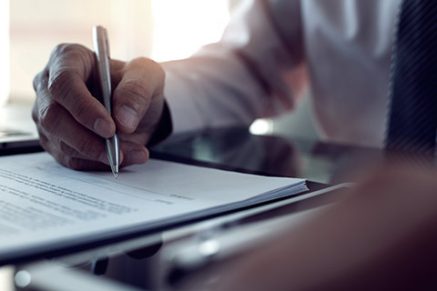
Can I take out a loan after declaring bankruptcy or filing a consumer proposal?
Summary
Can I take out a loan after declaring bankruptcy or filing a consumer proposal?
- You can borrow again after bankruptcy. You can even plan to buy a home!
- When you declare bankruptcy, you can’t have any credit cards for a certain amount of time. Thankfully, there are alternatives.
- If you pay all your bills on time, you can get your credit score back up. A lot of people manage to bounce back after two or three years.
Can I take out another loan after declaring bankruptcy?
Of course! Just because you declared bankruptcy doesn’t mean that your dreams will go up in smoke. Most people who file for bankruptcy manage to rebuild their credit after just two or three years.
There’s a lot to know about bankruptcy. One of the first things to remember is that bankruptcy will be a relief. This might seem counterintuitive, but you’re turning over a new leaf and you’ll have the chance to start over.
Of course you’ll have to work hard to rebuild lenders’ trust. But by learning to live within your means and showing that you’re able to follow a budget, you’ll reassure them. And your bankruptcy will be a thing of the past.
What will happen to my credit cards if I declare bankruptcy?
You’ll have to give all your credit cards to your Licensed Insolvency Trustee. But it won’t be forever.
When you’re officially out of debt, you’ll be able to apply for a new credit card. The credit card company might want you to prove your creditworthiness by using a secured credit card. Secured credit cards require a deposit in the amount of the card’s credit limit. For example, if you put down a $500 deposit, your credit limit will be $500. After one year of regularly paying your balance, you’ll get your deposit back and you can increase your credit limit.
But in the meantime, don’t worry—there are other options. Most financial institutions can offer you alternative products.
For example, there are prepaid credit cards, which are a bit like rechargeable cards you can load money onto. Once it has a balance, you can use it like any other credit card. But since you’re spending your own money instead of borrowing, you can’t really rebuild your credit.
There are also credit-debit cards. It’s like an Interac debit card, but it looks like a credit card. You can only use it if you have the amount you’re going to spend in the bank account linked to the card. Like a regular credit card, you can use it to make purchases online or over the phone.
Will my dream of owning a home go up in smoke if I declare bankruptcy?
No. You can own a home or condo after bankruptcy, and you could start by renting to own. This is an agreement you make with a seller to rent a home for a certain amount of time. At the end of the lease (generally three years), you can buy it.
This rental period gives you time to find a lender while rebuilding your credit. It shows that you’re serious, because part of the rent that you’re paying will be used as a down payment. If you have a stable, well-paid job and you’ve done the right things to rebuild your credit, you might be able to find a lender who trusts you two or three years after declaring bankruptcy.
Another option? In the worst-case scenario, you’ll just have to be a bit patient. Because seven years after you declare bankruptcy, it will disappear from your credit history for good. Take this as an opportunity to save up a down payment—if you manage to save 20% down, all the better. And if you’ve managed to get your credit score back up, banks and other lenders could give you a mortgage loan at a regular interest rate.
Can I get other types of loans after bankruptcy?
Yes. Even after declaring bankruptcy, you’ll have access to other types of loans, like personal bank loans and car loans.
These are considered private loans. That means that the lender can set the repayment terms. They make the rules and draw up the contract, but they shouldn’t take advantage of you. There are laws governing this type of loan.
Private loans = be vigilant
Your car won’t start, your roof is leaking, or your computer crashed? Some situations may require a private loan. But be careful about offers that seem too good to be true. It’s important to know the truth about fast cash.
The truth is that “buy now, pay later” offers are most enticing to those who need them most. Read the lender’s terms and conditions closely—it might not be as good of a deal as it seems. You should ask yourself a few questions:
— Are the payment deadlines too tight? Take the time to read the terms.
— Is the down payment bigger than what’s in your wallet? Don’t rely on windfalls and stick to your budget.
— Are the interest rate and fees too high? You don’t want your computer to end up costing three times the sticker price.
Will I be paying more interest after bankruptcy?
Since you’re rebuilding your credit, lenders might require a higher interest rate and/or security deposit. They’ll want to protect themselves while you rebuild your creditworthiness.
Will I need a guarantor?
Not necessarily, but some lenders might require it. For example, you might need a guarantor on your lease.
At least your credit score (not your guarantor’s) will benefit if you make payments on time.
How will bankruptcy affect my credit score?
Your credit score will take a big hit after bankruptcy. Lenders will know that you’ve had trouble paying your debts in the past. The good news is that you can improve your score—you just need to take action.
Many factors can influence your credit rating. To sway things in your favour, the best thing to do is pay your lenders and service providers. Don’t skip a payment and be sure to avoid late payments!
How long will your credit score be affected by your bankruptcy? It depends on the person. Some manage to improve it within two or three years. After seven years, your bankruptcy will officially disappear from your credit history. One thing is for sure: if you keep at it, your score will increase, year after year.
If I declare bankruptcy, can I have a bank account?
Of course. Everyone is entitled to a personal bank account. It’s the law! Also, under certain conditions, your RRSP is protected even if you declare bankruptcy.
But there will be some drawbacks. For example, all cheques (except paycheques and government cheques) will be placed on hold for a few days.
Your bank could also limit your use of certain products and require overdraft protection. What is overdraft protection? It’s a financial product that keeps your account from being overdrawn when you spend more than your account balance.
Financial institutions can also remove your account overdraft option after bankruptcy. This will keep the account from having a negative balance, limiting the financial institution’s risk.


